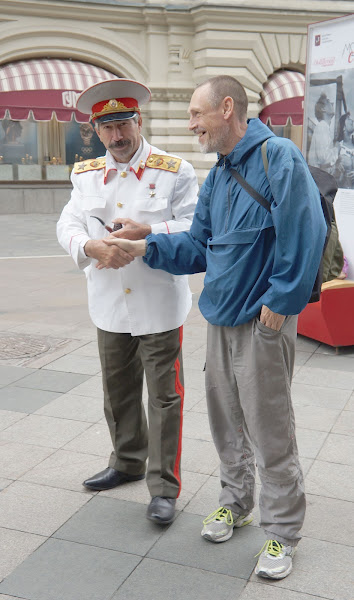The King
Before entering Thailand we knew that the King is extremely respected and revered in Thailand. And that it is illegal to insult him or the monarchy in general. This raised some contradictory thoughts in us and sounded quite pre-historic, very far away from the anarchy we support or from the republic states that we were used to.
When we entered Thailand there was a film shown on the flight before landing. In the film an older couple was walking around in fancy clothes and distributing presents to peasants. There were also some pictures of the couple when they were younger, and the old man took pictures of the people that worshipped him. Funny thing, we thought and continued sleeping.
There was a portrait of the same people in the airport, we noticed when we walked through the immigration and customs and were finally in Chiang Mai, North Thailand.
We stayed the first week in city’s Night Bazaar area and visited some Buddhist temples. In one of the temples we met two very familiar guys: Buddha and the King sitting side by side. There is a kind of personality cult for the monarch in Thailand. Everywhere in every city there are pictures of the king, or of his wife, or both of them. He was like a big brother that followed our steps wherever we went.
Our friend, Martijn from the Netherlands, who works here as a guide, explained that Thai people genuinely love their king. He had lots of good will thanks to helping those in need and correcting wrong doings in case of unresolved disputes like some past revolutions and military coups. This raised respect in us. He was not just putting his pictures everywhere but actually played an active role in Thai society. And he had gained that respect without having any actual power, just the support of the people. He had won lasting admiration because of his relentless travels and his strong personal interest in rural development earlier in his reign.
People turn to the king in difficult times such as the recent coup d’état that took everybody by surprise. When the coup stopped Thai TV broadcasts, pictures of the king were shown instead. Even the military behind the coup showed their loyalty to the king by wearing yellow ribbons. The loyalty was such that the international media asked is the king behind the whole coup. But when put into Thai perspective, there is nothing surprising in citizens expressly showing their loyalty. When the king recently celebrated his 60 years on the throne, millions of Thai citizens commemorated the event and showed their reverence by wearing yellow t-shirt—the official royal colour. Thai people wear yellow t-shirts or carry yellow flags not only during festivities but also otherwise. Yellow is the favourite colour of the whole nation.
For a Westerner, who is used to more or less controversial monarchs with little or practically no power or influence at all, it is really surprising to see the opposite. Thailand’s king really seems to unite the people in a way that no other head of state or government could do.
Thailand’s king is the world’s longest-serving monarch with his 60 years in throne. He has already reigned through 17 military coups, 20 different prime ministers, and 15 constitutions until the latest coup on 19 of September 2006. According to Thailand TV, the coup has the king’s support. Nobody knows what happens in Thailand now or what will happen in the future. However, one thing is sure. The reason why Thais are worshipping their king is respect, which is the cornerstone of Thai society. And that respect will remain long after the king and the current military junta.
We can only wonder what the king of Finland might have been if the plan to make Finland a monarchy instead of a republic had succeeded in 1918.
Read about respect in Argentina.










Comments